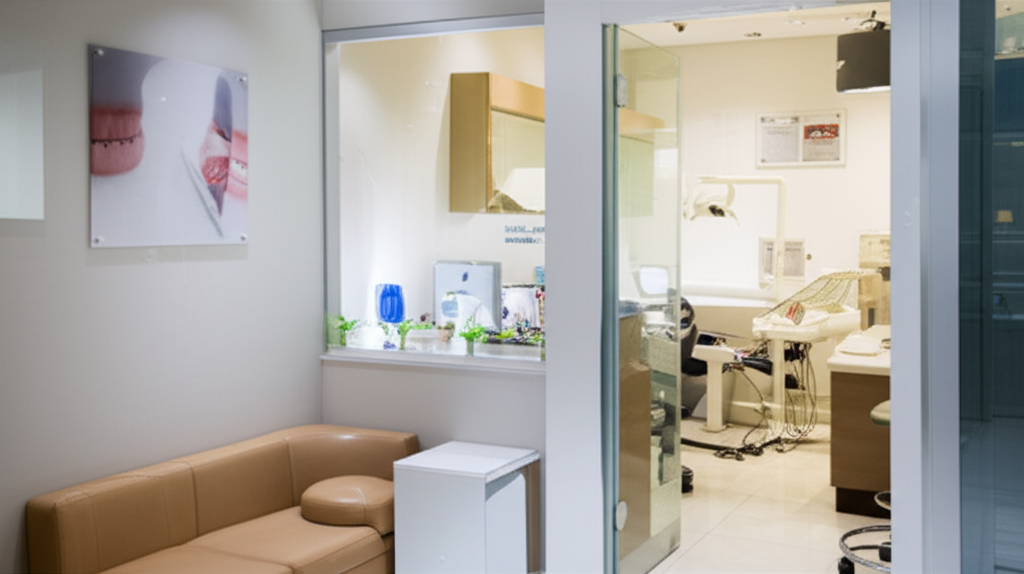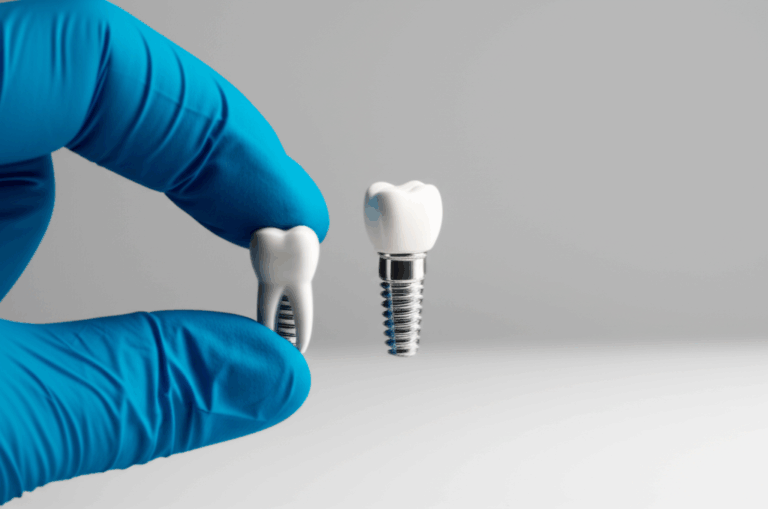
Are Dental Implants Covered by Insurance in India? My Complete Personal Guide
By someone who’s looked at lots of policy papers, argued with insurance, and learned some lessons the hard way.
Table of Contents
- After an Accidental Injury
- With a Special Dental Rider or Add-on
- Corporate/Group Health Policies
- Standalone Dental Plans (Rare Beasts)
- EMI Schemes From Clinics
- Personal Medical Loans
- Dental Savings & Budgeting
- Employer Help
- Crowdfunding (In a Pinch)
Introduction: Why I Needed to Know About Dental Implant Insurance
A few years ago, I lost a tooth in a sudden bicycle fall. I’m one of those people who thought dental insurance was only for regular check-ups. So you can imagine my shock—and you might feel the same—when my dentist said I should get a dental implant and told me a price that made my eyes go wide.
That moment pushed me into the world of insurance words, policy rules, and desperate Google searches like “are dental implants covered by insurance in India?” If you’re here, you probably have the same question. Let me tell you exactly what I found, so you won’t have to get lost and confused like me.
Here’s the Quick Answer: Does Insurance Usually Cover Dental Implants in India?
Let’s not drag this out. For almost everyone in India—me too—the answer is simple: regular health insurance policies do NOT pay for dental implants.
The main reason? Most insurance companies say implants are an “optional” or “cosmetic” thing, even if you think you really need it to eat. That small detail matters a lot.
Normal health insurance (including mediclaim) usually skips anything to do with crowns, bridges, or implants unless you had a bad accident. For me, this meant I had to pay most or all of the cost.
Why Insurance Excludes Most Dental Implants (My Experience With Policy Jargon)
Cosmetic vs. Medical Necessity
My first question for the insurance agent was: “But I need this implant to eat, so why won’t you pay?” Here’s the answer I got, again and again:
- Insurance companies call dental implants cosmetic. That means they think it’s for looks, not something that saves your life.
- If your jaw was ruined (I hope not!) in a crash and you couldn’t eat, maybe they would help you. But if it’s just normal, no luck.
Elective Procedures & OPD Exclusions
Before all this, I never heard terms like “elective procedure.” Insurance loves this term. It means anything you “choose” instead of something you really need to stay alive. Implants, root canals, and crowns fit here.
Most dental treatments also happen in the dentist’s chair, not in an operation room. In insurance language, that’s OPD (Outpatient Department)—and almost no policies pay for OPD dental work unless it’s clearly written in the benefits.
What Insurers Commonly Exclude
When I finally looked at my own policy—after not reading it for years—I found something called “Standard Exclusions.” Here’s what’s usually on the dental list:
- Regular check-ups and cleaning
- Fillings and easy repairs
- Crowns, bridges, dentures
- Implants of any kind (unless a special case fits)
If you’ve ever read an insurance policy, you know those “Exclusions” pages are long and sometimes confusing. I felt upset… but knowing early is better than getting a big surprise.
Exceptions: When You Might Get Coverage (And What’s Needed)
Does this mean there’s no way insurance can pay for implants in India? Not always. Here’s what I found.
After an Accidental Injury
If your implant is needed because you had a really bad accident—think car crash or big sports injury—some insurance policies might help. Not all, but it’s worth checking.
You’ll need to show:
- The injury has to be by accident (not on purpose or by not caring for your teeth).
- Clear medical proof—get all your x-rays, doctor’s notes, and accident reports.
- Some policies say things like “Accidental Dental Treatment” or “Facial Trauma Coverage.” If you see these, you might have a chance.
I talked with a friend who broke his front teeth riding a bike. His insurance paid part of his implant bill, but only after he gave a police report and all his hospital records.
With a Special Dental Rider or Add-on
This one is tricky. I found a very few insurance companies let you pay more for a “dental rider” or add-on with your health policy. It’s an extra option with some dental help.
But—here’s the catch—these riders usually have:
- Small limits (often ₹5,000–₹20,000 per year)
- Long wait (maybe 2–4 years before you can use it)
- Most skip implants or bigger work unless clearly said
Always look for the “Dental Benefits” part in your policy paper, then call the insurance company and ask: “Does this rider cover dental implants? Is there a waiting time or a small limit?”
Corporate/Group Health Policies
If you work at a medium or big company, don’t forget to think about your group health plan. Sometimes, HR makes sure you get more benefits—especially if you’re older or in a high-demand job.
When I changed jobs, I found my new company policy included dental work (even small surgeries), but the implant was capped and only after two years at work.
Lesson: Ask HR what’s actually in there, because these things aren’t always talked about in ads.
Standalone Dental Plans (Rare Beasts)
In my research, I also found there are separate dental insurance plans in India. They’re not common, they cost a lot, and don’t offer much.
The catch?
- High costs and lots of limits on big things
- Usually only cover things like cleaning and fillings, not implants
- Long wait before you can try to claim for implants
Unless you love paperwork or your job offers it, this isn’t the easy answer for most people.
How I Checked My Own Policy—and How You Should Too
Many people just believe, “If it’s health or teeth, insurance will pay.” I learned it’s never that easy.
If you want no surprises, here’s my own steps for knowing what’s up:
- Look for “Exclusions” and “Dental Benefits.”
- Look for words about implants, accident, or waiting time.
- I called, told them my story, and got an answer (sometimes not very clear). Still, better to get it in email or writing.
- Many good clinics have tried insurance claims before and can tell you which companies are softer.
Pro Tip: Some clinics, like those working with an implant dental laboratory, might even help you with paperwork if the policy covers accidents.
If Insurance Doesn’t Help: How I Tackled Dental Implant Costs
I quickly saw that one implant (just the screw part) cost ₹25,000 to ₹50,000—and a lot more for more teeth or tricky cases.
If you’re looking at that and thinking, “How will I manage?”—here’s what worked for me and some friends.
EMI Schemes From Clinics
Many bigger clinics offer EMI (monthly payment) plans. I used this for my second implant.
- Some clinics work with banks to give zero-cost EMI for 6–12 months.
- You’ll give your ID, bank or card details.
- This makes it easier if you need more than one implant or want something fancy like from a crown and bridge lab.
Personal Medical Loans
Banks or finance companies can give you a loan for medical needs. These aren’t the cheapest, but you can get money fast.
- Interest is higher than some clinic EMIs, so check.
- Good if your clinic doesn’t give payment plans or you want to try many options.
- You’ll need salary slips, PAN, bank papers—but it’s easier now than years ago.
Dental Savings & Budgeting
If you have time before your implant, start saving money every month just for dental. Even using a spare bank account or savings app helps.
When my dentist first said “implant,” I delayed six months and saved. It didn’t pay for everything, but I didn’t need a big loan.
Employer Help
Remember to ask if your job gives an emergency health loan or yearly medical pay-back. Some companies have extra health help that’s not in your normal insurance policy.
Crowdfunding (In a Pinch)
It’s not common here, but in serious accident cases, sites like Ketto or Milaap are an option. I saw some families use crowdfunding for urgent dental surgeries after a crash.
What Influences the Cost of Dental Implants in India (What I Found Out)
If you’re like me, you’ll ask what the money really pays for. Prices for what looks like the “same” thing can be really different. Here’s what changes the cost:
- How many implants: One front tooth is much less than a whole mouth.
- Type of Implant: Titanium is normal; zirconia costs more but is used for people who don’t want metal.
- Implant Brand: Famous names like Nobel Biocare or Straumann cost more, but local Indian brands can save you money.
- Extra Work: Need bone added, sinus work, or special made teeth? That’s extra.
- Where the Clinic Is & Dentist’s Skill: Big city dentists charge more, but you might get fancy labs like digital dental lab.
- Type of Crown: Porcelain, ceramic, or metal-ceramic crowns all have different prices.
For a simple, single implant, with a crown, get ready to pay between ₹25,000–₹50,000. A full jaw? Could be ₹2–8 lakhs or more.
Conclusion: What I Learned—And What You Should Do Next
If I found out anything from learning about dental insurance and implants, it’s this:
- Don’t believe your insurance will pay for even big dental problems. Check the details, ask questions, and don’t just trust someone who says “OPD is covered.”
- There are rare times when insurance might pay: usually after accidents, or with special work/company plans. These are not normal.
- If insurance won’t help, you can still try EMIs, loans, saving, or employer help. Sometimes you’ll need to be creative.
- Don’t skip important dental care just because of money worries—teeth problems usually get more expensive if you leave them. Sometimes paying a little more for a good china dental lab or well-known Indian dental lab helps your implant last longer, saving you money.
My last advice? Ask lots of questions, get a second opinion, and don’t be scared to compare offers from both the dental and the money side!
FAQs About Dental Implants & Insurance in India (From My Inbox)
Q: Is any insurance policy in India guaranteed to cover dental implants?
No regular policy gives this for sure. Some company or special plans might, but they’re rare and usually have limits.
Q: What papers do I need if my implant is for an accident?
Hospital records, accident/police reports, dental x-rays and clear dentist’s letter. Get them right after the injury, don’t wait.
Q: Are there insurance plans with no waiting period for dental?
A few new policies say “no waiting period” for dental, but they usually set a small max on expensive work like implants—even if they cover them, which is rare.
Q: Is it cheaper to get dental implants in smaller cities?
Usually yes—fee is often less in smaller towns or cities. Just make sure the clinic uses a good dental ceramics lab for best results.
Q: Should I get a cheaper bridge or denture instead?
It depends on your money and dental needs. Implants are steadier than other fixed choices. Ask your dentist about what’s best for you. For more info, you might check this dental implant page.
If there’s one thing my story shows: for dental implants and insurance in India, knowing things is your best tool. Ask, compare, and look out for yourself. Good luck—you can do this!








